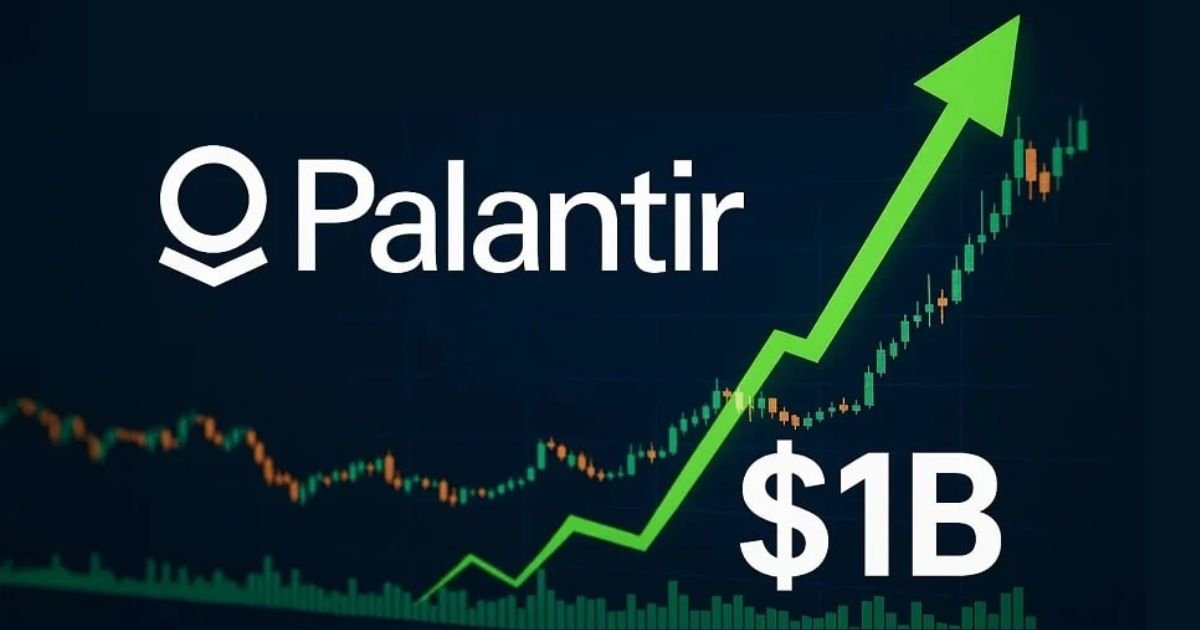
Palantir Meaning: What the World’s Most Mysterious Tech Company Really Does
In today’s world, where data is the new oil, few companies have created as much curiosity and debate as Palantir Technologies. If you’ve heard the name but don’t know what it really means or what the company does, you’re not alone. Palantir’s operations are often secretive, its clients are powerful, and its influence stretches across governments, armies, hospitals, and big corporations. So, what is the real Palantir meaning?
In simple terms, Palantir is a company that helps organizations make sense of massive amounts of disconnected data. It turns scattered, raw information into clear insights that can guide big decisions. But the story of Palantir goes much deeper — it is also about technology, power, and how information shapes the modern world.
The Origins and the Name: Why “Palantir”?
The word “Palantir” comes from The Lord of the Rings by J.R.R. Tolkien. In the story, the Palantír stones were magical vision stones that allowed rulers the chance to see and learn what was happening in distant lands. This matches the description of Palantir Technologies in the real world. Palantir’s software acts as a looking stone – it shows governments, militaries, and corporations what is happening, and allows them to understand complex systems.
The company’s founders – Peter Thiel, Alex Karp, and former PayPal engineers – started the company in 2003 to build software that intelligence organizations could leverage to analyze vast amounts of intelligence in the fight against international terrorism. Since that time, the company has expanded beyond only defense and security. Today, Palantir works with industries including healthcare, finance, manufacturing, and logistics, but its roots and foundation are still in intelligence and data integration.
What Palantir Actually Does
To truly understand Palantir meaning, we have to move past buzzwords like “AI” or “big data.” Palantir doesn’t sell your personal data or display ads. Instead, it focuses on one powerful idea — connecting data that don’t talk to each other.
Big organizations typically have information hidden away in numerous disparate systems. Palantir’s platforms take everything and integrate it into one coherent view. Whether it’s a military tracking its troops, a hospital steering patient care, or a bank monitoring financial risks, Palantir synthesizes all the data into a centralized platform that makes it actionable.
Imagine seeing troop locations, satellite images, and logistics reports on one display. Or, imagine a hospital predicting an ICU shortage before it happens by analyzing real-time patient data. That’s precisely what Palantir does – not by “owning” any of the data, but by making it talk to each other.
Palantir’s Core Platforms
Palantir has built four main software platforms. Each one is designed for a specific purpose, but together they show what the company truly stands for.
| Platform | Purpose | Who Uses It |
| Gotham | Used for government, defense, and intelligence operations | U.S. Army, CIA, Israel Defense Forces |
| Foundry | Used by businesses to connect and analyze their data | Airlines, hospitals, hedge funds, manufacturers |
| Apollo | The backbone that manages and updates Palantir’s software across the world | Supports Gotham and Foundry |
| AIP (Artificial Intelligence Platform) | Uses AI to help organizations automate and make decisions faster | Both government and private companies |
Each platform is much more than a dashboard. It’s designed to process complexity — where small mistakes can cost lives or billions of dollars. Palantir’s goal is to give decision-makers a clear, real-time picture so they can act faster and smarter.
Palantir’s Contracts in 2025

In 2025, Palantir became even more influential with massive contracts around the world. The U.S. Army signed a 10-year deal worth up to $10 billion, making Palantir the digital nervous system of military operations.
Other big deals include contracts with the U.S. Treasury Department to monitor financial activity, the Department of Transportation to unify infrastructure data, and the NHS in England to bring together healthcare records in a £330 million agreement.
Internationally, Palantir also strengthened its partnership with the Israeli Defense Ministry to deploy AI-driven battlefield tools. Once a client starts using Palantir, it’s very hard to switch to another provider — because the system becomes deeply integrated into the organization’s core operations.
Revenue Growth and Market Excitement
Palantir’s financial results illustrate the power of its model. In 2025, the company topped $1 billion in quarterly revenue, nearly a 50% increase compared to the same period last year. The net profits exceeded $326 million, indicating the company is growing and earning money.
Investors are optimistic. Palantir’s stock (NYSE: PLTR) skyrocketed for a 2025 gain of more than 140% as its AI-driven products gained traction. However, the high valuation also signifies the sky-high expectations. People are not investing in what Palantir has built to date — they are investing in its potential future state.
Controversies and Ethical Considerations
Palantir often finds itself in the middle of controversies. Its software is used in immigration enforcement, policing, and surveillance efforts, which raises questions about privacy and bias. Civil rights organizations have questioned how governments utilize their software, especially regarding government monitoring of citizens or sensitive data management.
The company argues it is simply a software vendor, and the definitive use of implemented products is up to its customers. But for many, the concern is about how much influence Palantir has over technology that permeates and touches millions of lives.
Why Palantir Is So Hard to Define
It’s even difficult for those within Palantir to describe what the company really is. One reason for this is secrecy — many employees are assigned to work on smaller pieces of projects without knowing how their work is linked to different teams’ projects — as one former engineer put it, “It’s like building one corner of a puzzle without ever seeing the full image.” Palantir’s work ultimately encompasses these areas: defense, healthcare, finance, energy, and logistics — it feels as if it is there and yet not there at the same time.
This makes Palantir representative of something more than a business description. It reflects a philosophy of transforming chaos into clarity, as any environment could be chaotic and in the end liquid and complex regardless of sensitivity.
Palantir’s Unique Model
Unlike traditional software or consulting companies, Palantir blends both models. It provides powerful, ready-to-use platforms like Foundry and AIP — but it also sends its own engineers, known as Forward Deployed Software Engineers (FDSEs), directly into client organizations.
These engineers don’t just install software; they work on the ground, side by side with the client, building real solutions in real time. Alongside them are Deployment Strategists, who make sure the technology is solving the right problems.
This “embedded” model allows Palantir to prove value quickly. It’s one reason why once clients start using Palantir, they rarely leave — because the company’s people and products become part of the organization’s daily operations.
What Palantir Actually Sells
Palantir sells more than software — it sells a system for decision-making. Its platforms help organizations transform data into action.
- Foundry is used by companies to understand their operations, supply chains, and customers.
- AIP connects artificial intelligence tools to real-world workflows.
- Gotham supports defense and intelligence missions.
- Apollo keeps everything running safely and smoothly, even in secure or disconnected environments.
These products, combined with expert teams, form what some call an “operating system for the modern world.”
How Palantir Works with Clients
Palantir doesn’t start with sales pitches. Instead, it runs short “bootcamps” where it uses a client’s real data to solve a real problem in just a few days. Once the client sees results, the relationship expands.
At first, Palantir’s engineers managed most of the system. Over time, the company helps the client’s staff take over. But because Palantir’s tools keep evolving, many clients continue the partnership for years.
Palantir vs. Other Companies
| Category | Software Companies | Consulting Firms | Palantir |
| Main Offering | Sell licenses and updates | Sell time and expertise | Sells integrated platforms + expertise |
| Delivery | Customers implement | Consultants build from scratch | Palantir engineers build and deploy |
| Outcome | Tools provided | Solutions designed | Real operations transformed |
| Revenue Model | License/subscription | Service hours | Product + embedded support |
This model is hard to copy because Palantir must excel in three areas at once: building advanced products, deploying expert engineers, and managing mission-critical systems. That mix makes it a category of one in the tech world.
The Real Meaning of Palantir
Palantir’s true significance lies in more than just its technology. It is about the increased power of data — and of the people who can exert control and extract meaning from data. Palantir’s systems play a crucial role in shaping decisions regarding wars, pandemics, transportation, and finance. It doesn’t just sell items; it establishes the digital infrastructure that governments and businesses rely on. This characteristic of Palantir makes it both fundamental and contentious.
It claims to be a toolmaker, but ultimately is helping to shape how the modern world is making decisions. Its platforms connect data, people, and power, and in doing so have quietly emerged as a common designer of the world’s systems. In shorter terms, Palantir meaning is about rendering the invisible visible — transforming data into meaning, and meaning into action.
Read More About: Palantir Founder Alex Karp: The Philosopher CEO at the Frontlines of Data, AI, and National Security


